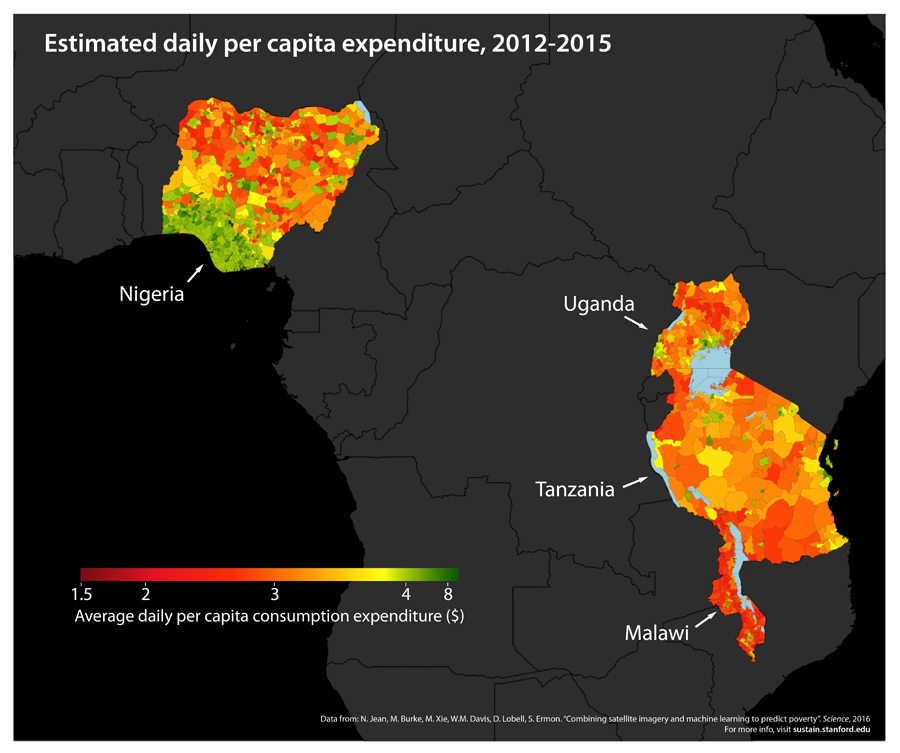
Getting aid to impoverished Africans is hard enough, what with blockades of bureaucracy and red tape. But in many African countries, bad data, or a lack of it, makes distributing funds even more troublesome.
“Fighting poverty has always been this shining goal of the modern world,” Neal Jean, a doctoral student in computer science at Stanford University’s School of Engineering, noted. “It’s the number one priority for the United Nation’s 2030 Agenda for Sustainable Development, but the major challenge is that there’s not enough reliable data. It’s really hard to help impoverished people when you don’t know where they are.”
This fundamental problem was what Jean and five computer scientists hoped to solve, using satellite imagery and a machine learning model. Their new study, which was published today in Science, provides a proof-of-concept for an algorithm capable of predicting information about poverty in five African countries: Nigeria, Tanzania, Uganda, Malawi, and Rwanda.
Register for Tekedia Mini-MBA edition 17 (June 9 – Sept 6, 2025) today for early bird discounts. Do annual for access to Blucera.com.
Tekedia AI in Business Masterclass opens registrations.
Join Tekedia Capital Syndicate and co-invest in great global startups.
Register to become a better CEO or Director with Tekedia CEO & Director Program.

And they seem to be right as the map nearly looks it.
Source: QZ
Besides this news, ros pc download is trending too. Do check this amazing game to get into the battleground action now!


[…] then, farm productivity must accelerate at a faster rate than the global average to avoid continued mass hunger. Find out more: Source: Harvard Business Review […]